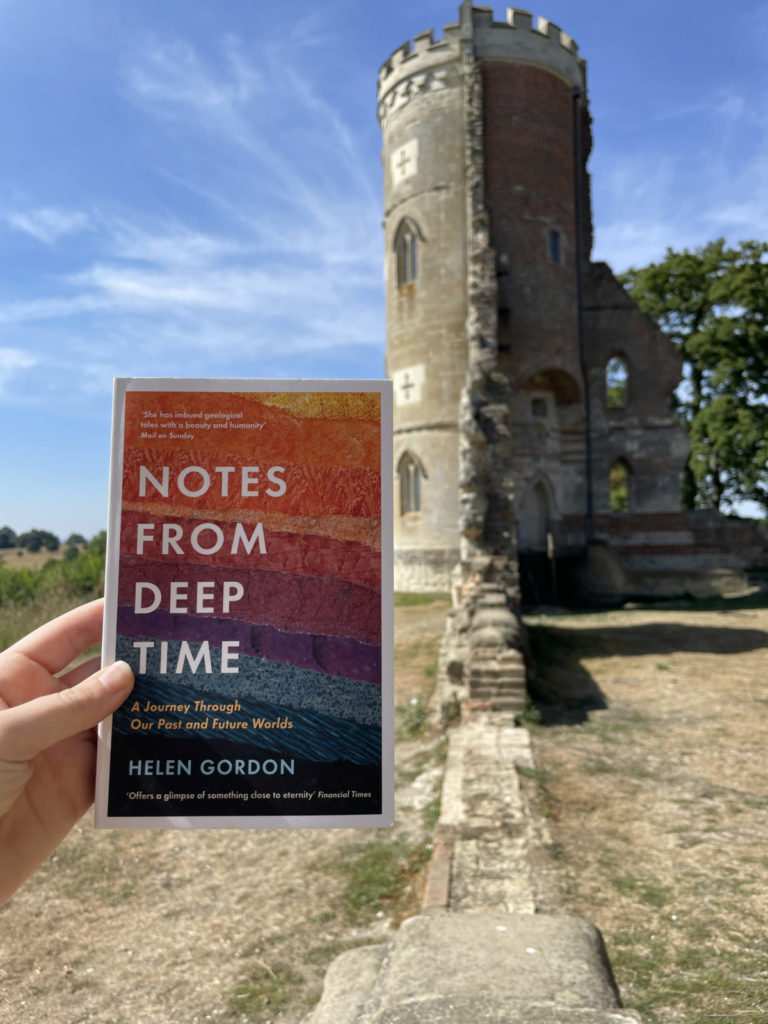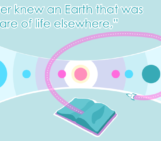This week one of our editor’s, Aisling Dunn, brings back the book reviews, talking through her thoughts on her most recent read and why she recommends you all read it too.
There’s no doubt about it – I am a self-confessed book lover. Whether its fantasy stories about imagined worlds, classic tales set in 19th century England, travel writing, historical non-fiction, biographies, there are very few genres I won’t try. Until recently however, I have always steered clear of any popular science books focused on geology. I’m not sure whether its because I’m worried they’ll be oversimp lified, or that reading about earth science in my free time won’t feel like a break from work, but until last month I largely avoided them. That all changed though when I saw the beautiful cover of Notes From Deep Time by Helen Gordon. (Yes, I judge books by their covers.)
lified, or that reading about earth science in my free time won’t feel like a break from work, but until last month I largely avoided them. That all changed though when I saw the beautiful cover of Notes From Deep Time by Helen Gordon. (Yes, I judge books by their covers.)
Given the blurb reviews describing the book as a ‘marvel-rich masterclass’ and ‘as multi-layered as the deep-time planet itself’, I felt now was finally the time to end my embargo on geological non-fiction and dive into the world of deep time from Helen Gordon’s perspective. And so, in sunny weather, I headed to a nearby ruined folly to sit in the shade and read, falling instantly in love with this book.
Spit into a series of distinct chapters covering many different aspects of the interplay between deep time and various geological disciplines, Notes From Deep Time follows Gordon’s adventures around the world, visiting museums, universities, nuclear waste disposal sites and world class outcrops, as she tries to understand deep time from the perspective of someone who hasn’t studied earth sciences before. And for this reason, I think the book is incredibly accessible to the general public, which is why I instantly started recommending it to friends and family who are always asking what it is I study and why I ‘like rocks’ By following Gordon’s journey, you are slowly introduced to challenging concepts and nuanced debates that, as she puts it, leave you with temporal vertigo without feeling overwhelmed by an avalanche of new information.
However, I would also like to take this opportunity to recommend this book to people who already have a background in earth sciences, be it geodynamics, structural geology, stratigraphy, palaeontology or any other discipline. Because what Gordon has achieved in Notes From Deep Time is to put so eloquently into words a passion for geology that I have so often failed to do myself. Be this directly through her own interpretations and experience, or through sharing the knowledge and musings of the scientists she met whilst researching for the book, she captures the beauty of what it means to study how our world has been shaped through deep time, and how, for the first time ever, we are beginning to shape that world too.
This is perhaps most easily explained by a discussion in the closing chapter ‘On the Beach’ in which Gordon describes how you don’t have to be able to name every single bird, plant and rock to be able to enjoy a landscape, but in beginning to do so, you embrace a new appreciation for your surroundings which makes them no longer a backdrop but part of a wider history which can be used to make sense of our own place in deep time.
Another thing that Gordon achieves is bringing to life the wonderful people behind the geology. I’ll admit, there were chapters where scientifically I didn’t learn anything new. However, by exploring concepts through both the lives of the people who initially theorised them as well as scientist currently working at the forefront of their fields, Gordon humanised geology in a way that no lecturer for me ever has. I think most earth scientists will attest that one of the most amazing things about our field is the people within it, the people who you share fieldtrips and offices with, who you collaborate with and meet at conferences. By focussing so much on the people behind the science, I think Notes From Deep Time manages to capture just how important the scientists themselves are to enthusing the next generation.
Another way that Gordon has surpassed my university lecturers is by achieving what I had, until recently, believed for myself to be impossible – enjoying palaeontology. Again, the narrative story telling of palaeontologists themselves played a big role in this, but as with all of her chapters, she offered up a new perspective on the modern day relevance of these fields which I hadn’t previously considered. And this is why I think Notes From Deep Time is such a good book to recommend to earth scientists – in being so broad but also insightful, both topics I had once written off as well as the ones I’m currently working on became truly captivating in ways I either had not previously appreciated or been able to express.
Notes From Deep Time is a beautiful reminder that there is so much more to earth science than just your own little corner of the field, and that the history of geology is as much a part of the science as the theories. It is an ode to interdisciplinary study and to appreciating the world around us, and has expressed exactly why this subject is so much more than just rocks. And its also convinced me that I definitely should be reading more geological popular science!



